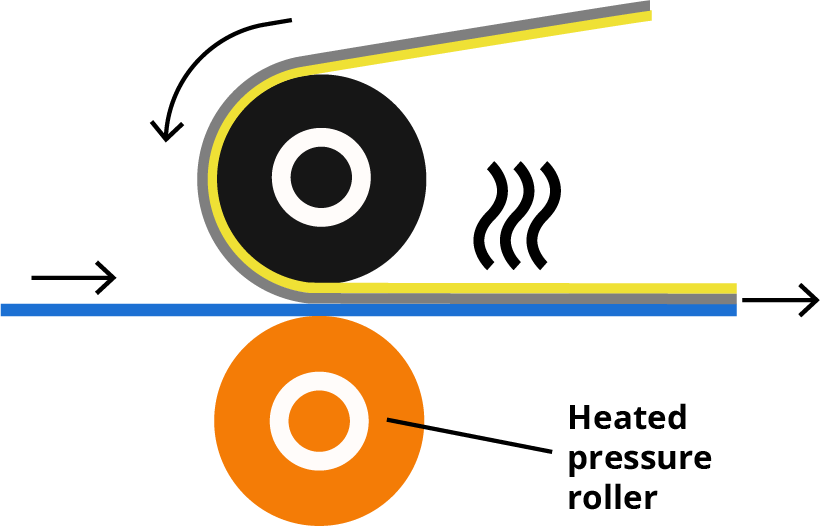A new hot lamination process
for demanding technical applications
Hot lamination uses heat-activated thermoplastic adhesive films to bond various materials. The film is first applied in its solid state at room temperature, then thermally activated to ensure adhesion. This process enables precise, delayed, and repositionable bonding, ideal for demanding technical applications.
The transformation using heat-reactivable hot-melt films relies on thermoplastic polymer-based adhesive films that are activated by temperature rise.
During the process, the adhesive film is applied to a substrate in solid form and then exposed to controlled heat, causing partial or full melting of the adhesive layer. This melt creates anchorage to the substrate or bonding between multiple layers.

The adhesive becomes tacky only when heated, allowing for delayed bonding and possible repositioning before thermal activation. Once cooled, the system provides optimal cohesion and adhesion.
This process is particularly suited to applications requiring high assembly precision, selective activation, or intermediate storage prior to final bonding.
Materials Processed
Target Markets
Fashion
Construction
Automotive
Furniture
Interior Design
Luxury Goods
Contact
-
17 Rue Edouard Garet
42160 Andrézieux-Bouthéon - +33477426590
